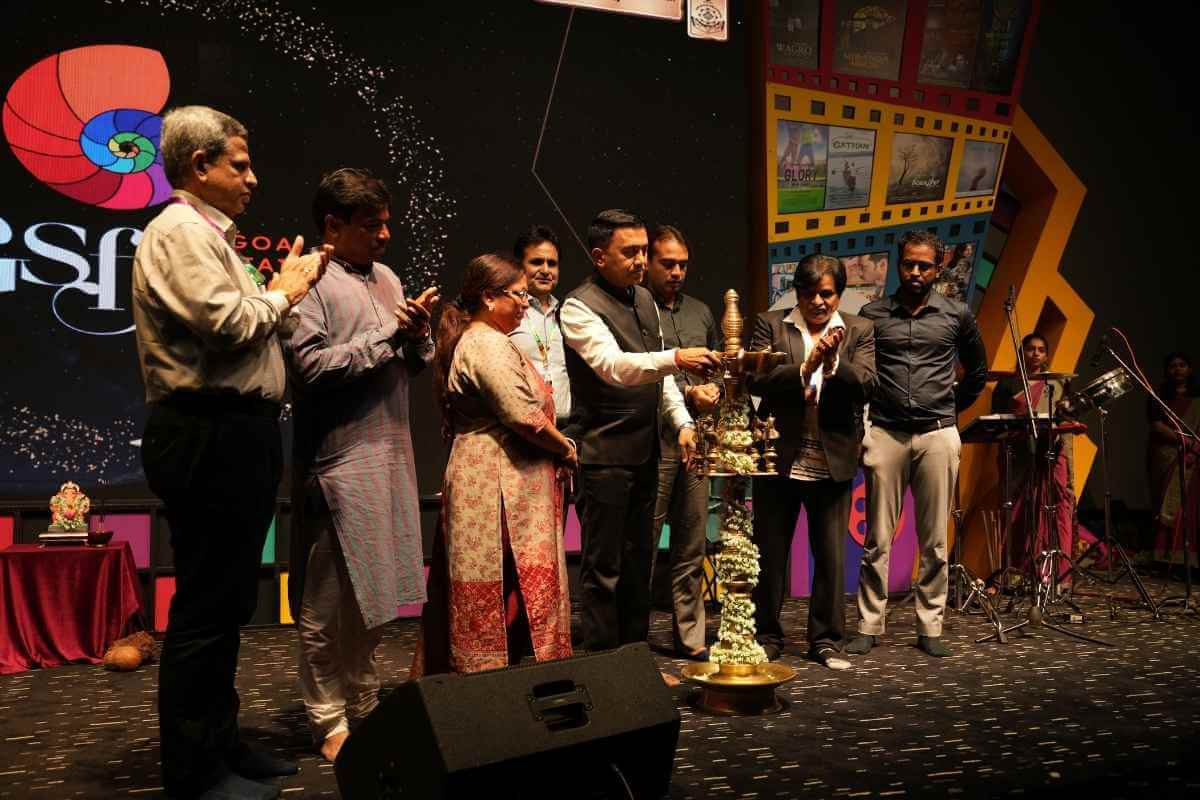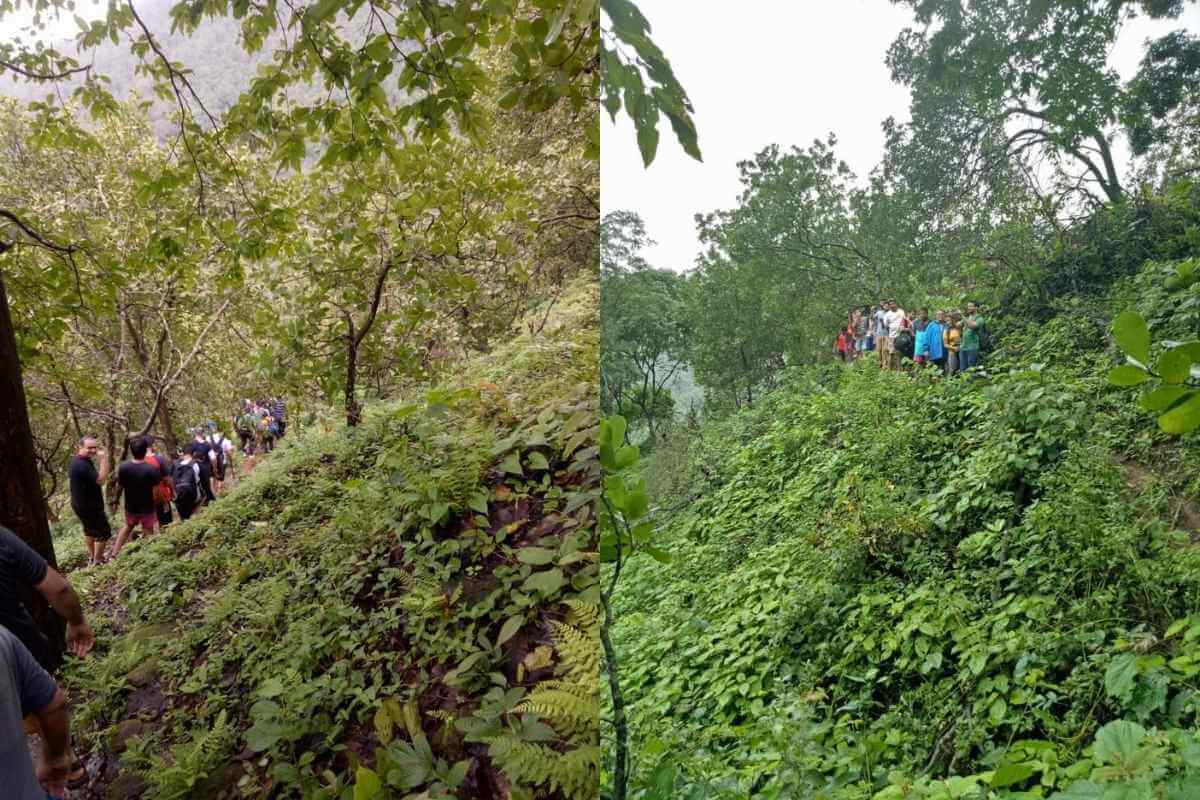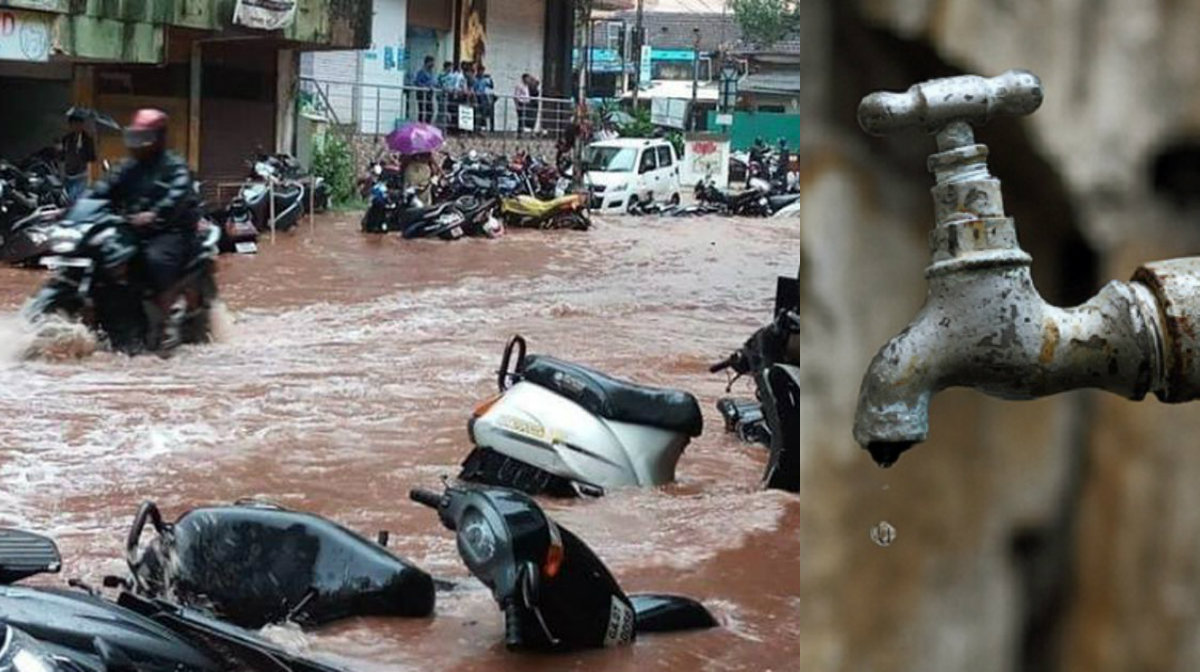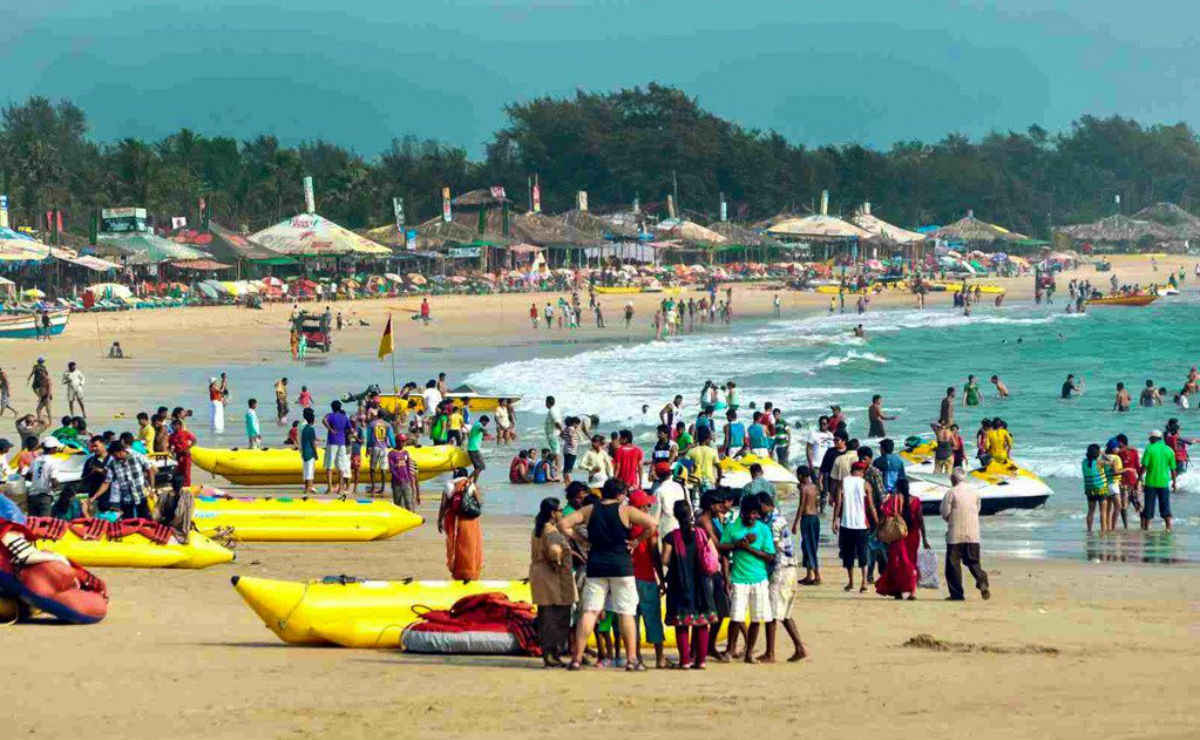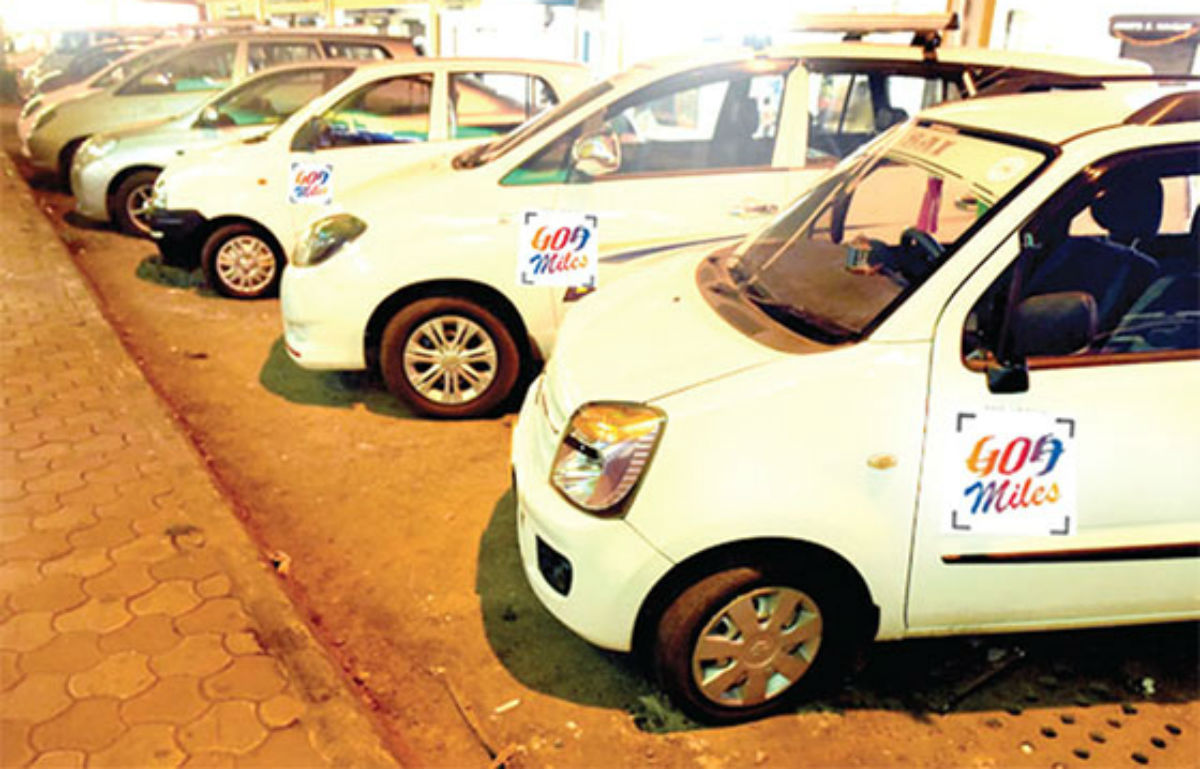The 51st International Film Festival of India (IFFI) will kickstart on the 16th of January and this time the entire show will set a new standard of festivals with it being entirely hybrid allowing global fans to be a part of the whole shebang. Organizing a festival of this magnitude, that too during COVID times, is not an easy task, but the vision and dedication of the Vice-Chairman ESG (Entertainment Society of Goa) Mr. Subhash Phaldessai, made this impossible thing possible in a very short span of time. Read on to see how the entire thing worked out …
The first challenge was to renovate the INOX Multiplex and make it ready in time for the IFFI and that was one of the biggest challenges facing Mr. Phaldessai. The Covid pandemic reached its peak in the month of May 2020 when they took up the task in hand, and the monsoons were about to begin from June onwards. “But that did not stop us from finishing the task. We invited the tender and finalized it in the month of May by handing over the work order to the successful bidder. I was following up the entire progress very closely till the end of the successful completion of the same”, said Mr. Phaldessai adding that one of the major challenges in front of him was to manage the laborers, contractors, skilled manpower, engineers who were stationed here in the ESG complex, “Even if one person was infected with the virus it could have been the big disaster and could have ruined the entire flow of work. Around 200 people were working at any given point of time and work was going on 24X7.”
“We did not allow anyone to leave the ESG complex and everything they needed was provided to them inside the premises itself. All of them were completely cut off from the outside world till the task get completed. None of them went out, nor got infected, and this was something that we had complete control over as we wanted to maintain this level of health security,” he added.
After spending nearly 40 crore rupees the New Inox Multiplex transformed into one of the most amazing places in Goa. “There is a big transformation from what it was, we have not only worked on the look and feel of the multiplex, but the technology used has also been upgraded. in terms of the projection system, and the sound systems amounting to roughly 40 Crores worth of changes,” said Mr. Phaldessai adding that the initial dates were in November so time was limited and pressing. “Despite trying all the possible ways, we still got delayed by almost two months because most of the materials that were supposed to come from outside India was halted due to the Covid condition and related protocols.”
According to Mr. Phaldessai when the entire world was silent under lockdown, he and his team was working inside the ESG to accomplish this impossible task. “We had turned the challenge into the opportunity and while everyone else was shielded and was settled at home, the ESG Team and the Inox Team were both working together and got this done flawlessly,” he said.
This will be the first time in the history of the International Film Festival of India that will be happening in a Hybrid form, which means the events and film exhibitions will be done in physical as well as online formats. “As we all know that life cannot stop and we decided to take up this challenge. Somewhere we had to start as the economic activities had come to a halt and unless we take some action, it was not possible to come out of the shell,” said Mr. Phaldessai adding that the economy of the country was going downwards and there was no revenue structuring happening. “How long are we just going to sit at home and expect things to work out? We couldn’t possibly survive without economic activities so the Directorate of Film Festivals and the Information and Broadcasting Ministry sat down with us and decided on holding IFFI in Hybrid format.”
Now that the festival is happening in the Hybrid format there’ll be lots of changes. “We are doing something that has not been done by anyone before. The screening part of the festival would be done in physical (offline) format and the other aspects of the festival such as master classes and retrospectives will be done online and for this, we have already made all the necessary arrangements such as Software and System Applications. We have done the necessary tests before giving them out to the public. It was a really challenging atmosphere but we managed to get all this done and we are confident that everything will go smoothly,” said Mr. Phaldessai.
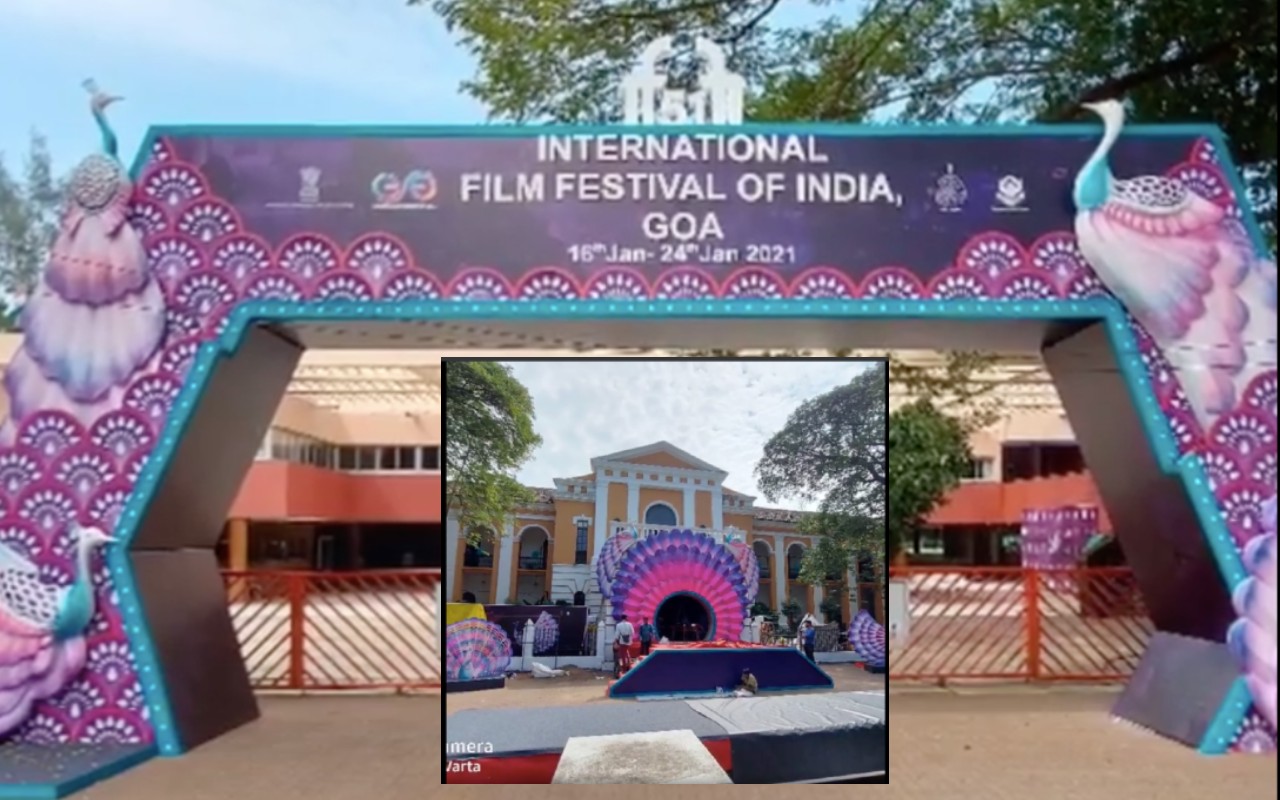
“We will be adhering to all the guidelines set by the MHA while doing the screening of the movies in the auditoriums, although we have the Auditoriums with a 900-seating capacity, as per the MHA guidelines only 200 people will be allowed at any given time. Besides that, we have also cut down on the delegate numbers from 14000 to a mere 2500 this time. The 4 Inox Auditoriums will also be used and 1 Auditorium of Kala Academy. At the moment, we have the 4 Inox Auditoriums, 2 ESG Auditoriums, and 1 Auditorium at Kala Academy,” he added.
Unfortunately, this time there will be no outdoor activities due to the Covid situation. “There won’t be any public screening this time and other activities have been completely scrapped since they attract a huge crowd and that can be a bit of a problem with respect to the ongoing pandemic. The DFF has clearly mentioned how we shouldn’t proceed with the Open Air Screenings as we cannot violate the guidelines ourselves.”
The next challenge Mr. Phaldessai spoke about is the sanitisation process at the various locations of IFFI. According to him, this time there will be a big leap in the process of handling international and national guests. “Earlier we used to provide them with the rooms on a sharing basis but this time that won’t be possible and we will have to even provide them with a car on an individual basis, as nobody would want to share the car with the others and this way number of rooms and cars arranged for the guests will go up tremendously. Before, the cars were kept in common for the guests, and if the destination was the same, each car would seat 4-5 persons. But now due to all our sanitization protocols we have dedicated cars for people in a singular manner. Cars will be sanitized pre and post-travels and so on. The auditorium seats will be sanitized before and after every show. We have arranged for sanitisation fogging machines, and this way there will be a huge gap between shows whilst that is done.
Even the screening of the films will be reduced this time compared to the previous year. Last year, we had showcased more than 350 films but this time that figure will not even cross the 200 mark and this year most probably Kala Academy will be used for the opening and closing ceremony of the festival,” said Mr Phaldessai.
As far as the crowd is concerned, this time there won’t be more than 200 people allowed for the opening and closing ceremony. “Unlike last year wherein more than 5000 guests had attended the Opening and Closing Ceremony of the IFFI this year that number will remain limited to just 200 and to maintain this we will be giving the entry passed only to the people of Festival Core Team and rest of the people will be able to enjoy the opening and closing ceremony online only,” he said.
This year the ESG has also cut down on the cultural programs during the opening and closing of the festival with only limited number of activities. “This time we have given preference to Goan performers to participate in the cultural programs presented during the opening and closing of festival. This time we have given all the tenders to Goan artists which also includes the decorations and installations at the ESG venue and other locations. We’re looking to push our local and Goan talent by giving them more exposure and perks when they do work with us in this festival. I am really proud and happy to say that the Goans are doing a really wonderful job with us for the festival







